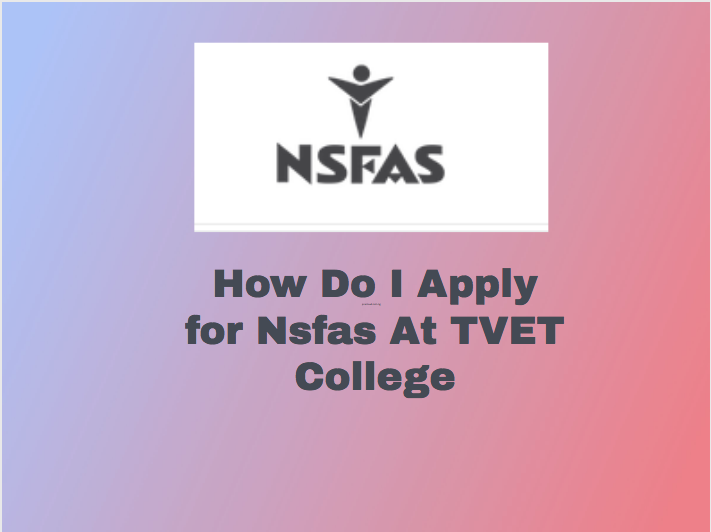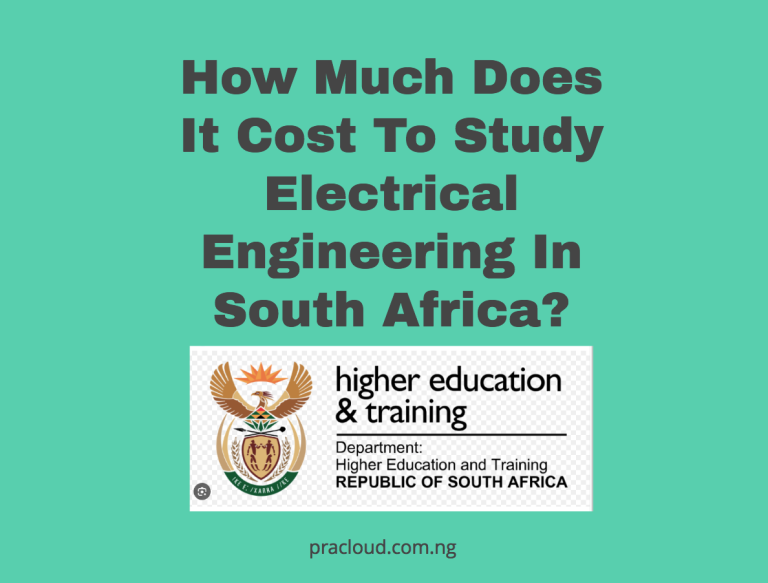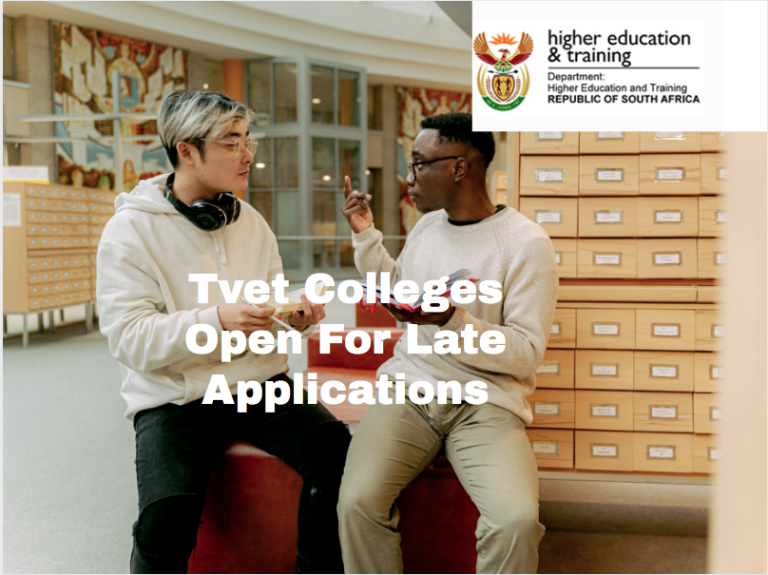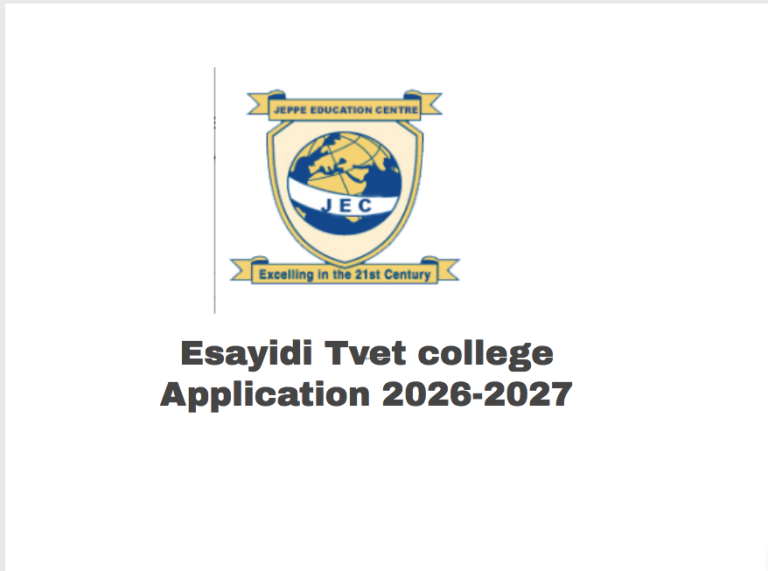Can You Study At TVET College Without Matric
Can You Study At TVET College Without Matric
Can You Study At TVET College Without Matric
TVET College Courses You Can Take Without Matric in South Africa:
Many people believe that without a matric certificate, further education is out of reach, but that is not true. In South Africa, you can still build a solid career even if you did not complete Grade 12. Technical and Vocational Education and Training (TVET) colleges are designed to provide practical skills and recognised qualifications, making them a great option for those without matric.
TVET colleges offer a wide range of accredited courses that focus on hands-on training and industry-specific knowledge. These programmes are tailored to meet the needs of various sectors such as engineering, hospitality, business management, agriculture, and more. This means you can gain valuable skills that employers are looking for, opening doors to employment or even starting your own business.
Not having a matric should not stop you from achieving your career goals. Many TVET colleges accept students who have completed Grade 9 or an equivalent level of education. You can begin with foundation or bridging programmes and progress to higher-level qualifications as you gain experience and confidence.
Besides traditional classroom learning, TVET colleges often include practical workshops and internships, giving you real-world experience while you study. This combination of theory and practice prepares you for the job market and helps you become self-reliant.
If you are ready to take the next step, explore the different courses offered at TVET colleges without matric. From short courses to specialised training, there are many opportunities to grow your skills, secure employment, and build a brighter future. Education does not end with matric. TVET colleges can help you succeed.
Types of Courses You Can Study Without Matric in South Africa
Not having a matric certificate does not mean your education or career has to stop. Many accredited offline and online courses are open to individuals without a matric, helping them gain valuable skills and improve job prospects. These programmes can last anywhere from a few weeks for a short micro-course to up to three years for a full vocational qualification. After completion, students receive a certificate proving they have the skills and knowledge to perform effectively in the workplace.
Certificate Courses:
- Short certificate programmes are available in many fields. Their duration varies depending on the subject and skill level.
- Options include Short Certificate Courses, regular Certificate Courses, and Comprehensive Certificate Courses, each offering different levels of training and recognition.
Accredited Courses:
- Recognised by the Department of Higher Education and Training and other accrediting bodies, these courses can even lead to a matric equivalent qualification, opening more career doors.
Vocational Training:
- Technical and Vocational Education and Training (TVET) colleges offer practical programmes that prepare students for employment.
- Completing a National Certificate: Vocational (NCV) is an excellent way to gain a matric-level credential while focusing on hands-on skills.
After completing these courses, you can find work in a variety of industries:
- Hospitality & Tourism: Jobs like bartender, housekeeper, or innkeeper.
- Beauty: Roles such as nail technician, makeup artist, or owner of a home-based salon.
- Finance & Accounting: Skills in budgeting, financial reporting, and risk management.
- Childcare: Careers in daycare, crèche management, or child psychology.
- Engineering-Related Fields: Positions like welder, tool maker, or repair technician through TVET training.
Popular Short Courses You Can Study Without Matric in South Africa
You do not need a matric certificate to start learning valuable skills and earning an income. Short courses are a practical way to build knowledge, gain confidence, and improve your job prospects. Before applying, it’s important to research each course and consider how it aligns with your career goals.
Below are some of the most sought-after short courses that can help you take a step toward financial independence:
Child Day Care:
- Know how to care for children and support their mental and emotional development.
- The course also covers effective communication with both children and parents, as well as basic business skills.
- Graduates can work as daycare administrators or babysitters.
Financial Management:
- Gain an understanding of basic accounting principles, income statements, and financial analysis.
- This course prepares you for entry-level office roles assisting a finance department or for advancing to more complex finance studies.
Make-Up Application:
- Discover the techniques and professional etiquette needed to work in a salon or start your own beauty business.
- The course covers human anatomy, facial structures, and tool usage for perfect application.
Short courses like these offer several benefits:
- Duration: Most take only 4 to 8 months, often less than a year.
- Flexibility: Many options are available online, including virtual study groups and tutors.
- Affordability: Study materials are included, and online learning reduces travel costs.
- Practical Skills: Courses focus on real-world, job-ready abilities, including business English.
By choosing a short course that suits your interests, you can quickly gain marketable skills, boost your credibility, and open doors to new career opportunities, all without matric.
Accredited Courses You Can Study Without Matric in South Africa
You can still earn a recognised qualification in South Africa even if you have not completed matric. Applying for accredited courses is a smart choice because they meet strict educational standards and are recognised by employers and training authorities. Completing an accredited programme improves your skills, builds credibility, and increases your chances of finding work or advancing to higher studies.
These courses are linked to the National Qualifications Framework (NQF), which measures education levels from Grade 9 (NQF Level 1) up to a doctorate. While matric equals NQF Level 4, you can begin at a lower level and work your way up.
Below are some popular accredited courses you can take without matric:
National Certificate: Bookkeeping:
- This well-recognised course requires at least Grade 10 or NQF Level 2 to apply.
- It covers about 120 credits of study and awards an NQF Level 3 certificate.
- Graduates gain skills in bookkeeping, financial records, and office administration, making them valuable to small businesses and accounting firms.
National Certificate: Small Business Financial Management:
- A nine-month programme that equips you with essential financial and business skills, from handling transactions to interacting with clients.
- Completing 120 credits earns you an NQF Level 4 qualification equivalent to matric.
Achieving NQF Level 4 through an accredited course is a recognised alternative to matric. With this credential, you can qualify for degree programmes such as a Bachelor of Business Administration (BBA) or pursue other higher education options.
How to Choose the Right Course Without Matric in South Africa
Selecting a course without matric requires the same careful planning as any other educational path. Before enrolling, it is important to research the available options and understand the National Qualifications Framework (NQF) level you will achieve after completion. An NQF Level 4 qualification from an accredited programme can serve as a matric equivalent, opening doors to employment and even higher education.
Because this can be a second chance to meet your educational goals, consider the following factors before making a decision:
Course Duration:
- Programmes can range from short four-month courses to full three-year qualifications.
- Decide how much time you can realistically commit.
Cost:
- Tuition fees differ widely between institutions and formats.
- Compare prices and decide whether in-person or distance learning fits your budget.
Accreditation & Reputation:
- Always choose an accredited course from a recognised institution.
- Accredited qualifications are respected by employers and can improve your job prospects.
Flexibility:
- If you work part-time or have family responsibilities, an online or distance learning option may be more suitable.
- Many courses without matric allow you to study from home and set your own schedule.
Taking time to evaluate these points will help you pick a programme that matches your career goals, lifestyle, and financial situation. With the right choice, you can gain valuable skills, earn a recognised qualification, and create new opportunities even without a traditional matric certificate.
Career Opportunities After Completing Courses Without Matric in South Africa
Not having a matric certificate does not mean your career options are limited. By completing short courses, accredited programmes, or vocational training, you can gain specialised skills that lead directly to employment or even self-employment. These qualifications focus on practical knowledge, making you job-ready in a wide range of industries.
The following are some promising career paths you can pursue after completing a course without matric:
Bookkeeper:
- Manage financial records, track transactions, and prepare important documents like income statements.
- Bookkeepers are in demand across small businesses and large companies.
Office Administrator:
- Support daily office operations, organise files, and help enforce office policies.
- Administrators may also assist with scheduling meetings or planning company events.
Welder:
- Use specialised equipment to design, fabricate, and weld metal structures.
- Welders can work in factories, construction, or offshore industries where skilled metalwork is essential.
Customer Service Representative:
- Handle phone and email queries, resolve customer issues, and provide product or service information.
- Strong communication and problem-solving skills make you a valuable team member.
Logistics Manager:
- Oversee the storage and movement of goods for warehouses, retail chains, or consumer goods companies.
- This role requires organisational skills and the ability to coordinate supply chains efficiently.
These careers show that with the right course and dedication, you can build a rewarding profession without a traditional matric certificate. Whether you choose finance, administration, skilled trades, or customer support, completing an accredited or vocational programme opens doors to stable employment and long-term growth.
Can You Gain Higher Education Without Matric in South Africa?
Yes, it is possible to pursue higher education without a traditional matric certificate. One of the most practical routes is to enrol in an accredited course that awards a National Qualifications Framework (NQF) Level 4 qualification. An NQF Level 4 is officially recognised as the equivalent of a matric certificate and can be used to apply for many higher education programmes.
For example, completing accredited qualifications such as the National Certificate in Small Business Financial Management or similar NQF Level 4 courses allows you to meet the entry requirements for certain diplomas or degrees, including options like a Bachelor of Business Administration (BBA).
It is important to ensure that the course you choose is recognised by the Department of Higher Education and Training (DHET) or a reputable accrediting body. This ensures your qualification will be accepted by universities, colleges, or other tertiary institutions when you apply for further studies.
While you may need to meet additional criteria depending on the programme or institution, gaining an NQF Level 4 through an accredited course provides a clear pathway to higher education, giving you the chance to achieve your academic and career goals even without a standard matric certificate.
Contact Information
- Visit: 123 Francis Baard Street, Pretoria, South Africa
- Private Bag X174, Pretoria, 0001
- Contact Details: 0800 87 2222/+ 27 12 312 5911
- Email: callcentre@dhet.gov.za
Not having a matric certificate does not have to end your educational journey. Many TVET colleges in South Africa welcome students who have completed at least Grade 9 or hold an equivalent qualification. Through practical training and accredited programmes, you can gain valuable skills, earn recognised certificates, and even work toward an NQF Level 4 qualification equivalent to matric. Visit this WEBSITE for More.
Other Links:
Does CJC have an application fee?
Which TVET colleges are open for 2023 applications?
Can I apply to CJC without matric?
Can I apply to TVET College?
Which TVET Colleges are open for the second semester of 2023?
Does Central Johannesburg College offer NSFAS?
Is CJC a private or public college?
What is needed for CJC?






